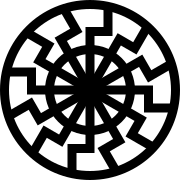
German mysticism (Sometimes called Dominican mysticism or Rhineland mysticism) is the name given to a Christian mystical movement in the Late Middle Ages, that was especially prominent in Germany, and in the Dominican order.
Although its origins can be traced back to Hildegard of Bingen, it is mostly represented by Meister Eckhart, Johannes Tauler, and Henry Suso.
Other notable figures include Rulman Merswin and Margaretha Ebner, and the Friends of God.
This movement stands in stark contrast with scholasticism and German Theology.
Some of the movement's characteristics:
Some in the movement came under criticism by the Church for heterodox or heretical opinions.
It influenced the following Protestant Reformation, as well as philosophers such as Schopenhauer.
A focus on laymen as well as clerics
An emphasis on instruction and preaching
Downplaying ascetism
A focus on the New Testament rather than the Old Testament
A focus on the Christ rather than the Church
A use of the vernacular (German and Dutch) rather than Latin or Hebrew
 Lefthit
Lefthit
No comments:
Post a Comment